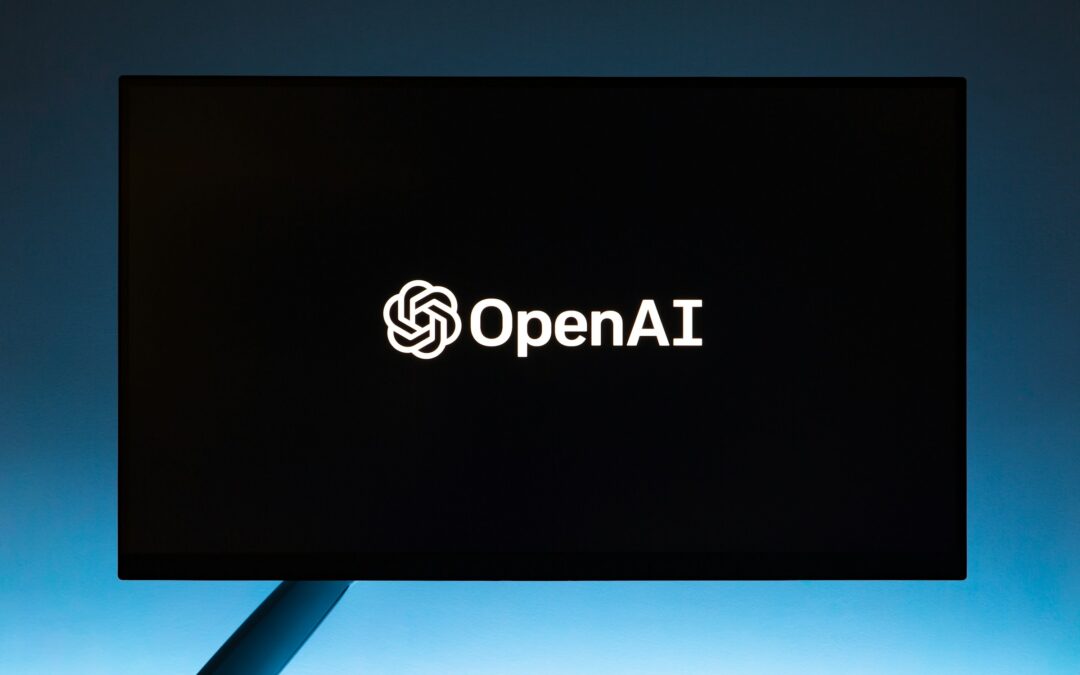A shocking case of OpenAI fraud shakes the programming world. A crypto enthusiast lost 2500 US dollars through a fraudulent API recommended by ChatGPT. This incident sheds light on the risks of using AI-generated code and shows clear AI security vulnerabilities on.
The programmer wanted to create a "bump bot" for Solana. He blindly trusted the code generated by ChatGPT, which contained a manipulated API. This revealed his private key. In just 30 minutes, all crypto assets had disappeared from his wallet.
This case calls for caution when using ChatGPT in programming. It shows how important it is to critically examine AI-generated results. Security should be a top priority when working with APIs.
Important findings
- A programmer lost 2500 US dollars through a fraudulent API
- ChatGPT recommended the malicious code
- The theft took place within 30 minutes
- AI-generated code harbors security risks
- Critical examination of ChatGPT results is essential
- OpenAI has been informed about the incident
- The fraudulent repository was quickly removed from Github
What is a fraudulent API?
Fraudulent APIs pose a serious threat to programmers and users of AI systems. They masquerade as legitimate interfaces to steal sensitive data and cause financial damage. The case of a cryptocurrency programmer who was infected by ChatGPT abuse 2500 US dollars shows the explosive nature of this issue.
Definition and characteristics
A fraudulent API pretends to offer genuine services, but is designed to access confidential information such as private keys. It often exploits trust in known platforms or AI systems. In the case of ChatGPT, generated code may contain such malicious APIs that Data breaches at ChatGPT enable.
Risks and dangers
The risks of fraudulent APIs are manifold:
- Financial losses
- Identity theft
- Compromising systems
According to a study, the success rate of fraudulent activity using ChatGPT is between 20 and 60 percent. The cost per successful fraud varies from USD 0.75 for stolen credentials to USD 2.51 for wire transfer fraud.
| Type of fraud | Cost per success | Success rate |
|---|---|---|
| Stolen login data | 0.75 USD | 20-60% |
| Bank transfer fraud | 2.51 USD | 20-60% |
Security researchers warn that current technical tools are not sufficient to effectively prevent the misuse of AI technologies. This underlines the need for increased vigilance and improved security measures when dealing with APIs and AI systems.
The role of ChatGPT in programming
ChatGPT has revolutionized the world of software development. Since its launch in November 2022 by OpenAI, it has become a valuable tool for programmers. The AI-supported platform offers a wide range of options for optimizing and accelerating the development process.
Possible uses of ChatGPT
ChatGPT is widely used in programming. It supports developers in writing code, testing, debugging and even code translation. An impressive example: ChatGPT can rewrite Java code in Python in a matter of seconds. It also provides valuable services in the analysis of security problems and code optimization.
Advantages of using ChatGPT
The advantages of ChatGPT in software development are considerable. It significantly increases development speed and can often solve complex problems quickly. GPT-4, the latest version, can even write working code for a mini-game within 60 seconds. Despite these advances, human developers remain essential, as they can understand complex relationships better than unreliable AI systems.
It is important to note that ChatGPT, despite its capabilities, is not infallible. The case of a programmer who lost 2500 US dollars due to a fraudulent API shows the risks of blind faith in AI-generated solutions. Developers must always remain vigilant and critically review the generated code in order to unethical AI practices to avoid.
Incidents with fraudulent APIs
The dangers of fraudulent APIs are real and can have serious consequences. A recent case shows how ChatGPT vulnerabilities can be exploited by criminals.
An example from practice
A cryptocurrency programmer fell victim to a fraudulent API posing as a legitimate ChatGPT service. The scam cost him 2500 US dollars. This incident highlights the risks associated with the use of AI-generated code suggestions.
Effects on programmers
The consequences of such cases of fraud go beyond financial losses. They lead to a OpenAI loss of confidence and force developers to rethink the way they work:
- Increased caution when using AI tools
- Implementation of additional security measures
- Increased verification of API sources
These incidents have triggered an important debate about the responsibility of AI companies such as OpenAI. Experts are calling for more transparency and better security mechanisms to ChatGPT vulnerabilities to minimize.
| Aspect | Impact |
|---|---|
| Financial loss | 2500 US dollars |
| Loss of confidence | High |
| Security measures | Reinforced |
To protect themselves from similar incidents, programmers must remain vigilant and continuously improve their security practices. Only then can they reap the benefits of AI tools without taking unnecessary risks.
How to recognize fraudulent APIs
In the world of risky language models and AI security vulnerabilities it is important to recognize fraudulent APIs. Programmers need to be vigilant to avoid falling victim to fraud. Here are some features of secure APIs and warning signs of fraudulent ones:
Features of a secure API
Secure APIs are characterized by clear features:
- Use of HTTPS encryption
- Detailed and comprehensible documentation
- No request for sensitive data such as private keys
- Regular security updates
Warning signals from fraudulent APIs
Fraudulent APIs often show the following signs:
- Unusual data transfers
- Missing or inadequate encryption
- Requests to disclose sensitive information
- Suspicious domains or URLs
Special care must be taken when using AI tools such as ChatGPT for API development. These systems can AI security vulnerabilities and risky language models use.
| Safety aspect | Secure API | Fraudulent API |
|---|---|---|
| Encryption | HTTPS | HTTP or none |
| Documentation | Detailed and clear | Incomplete or missing |
| Data requirements | Only necessary data | Excessive sensitive data |
| Updates | Regularly | Rarely or never |
Programmers should critically examine API proposals from AI systems and pay attention to these features to protect themselves from fraud.

Tips for ensuring API security
In times of OpenAI fraud and Data breaches at ChatGPT it is important to take API security seriously. Programmers are faced with the challenge of protecting their applications while at the same time taking advantage of AI technologies.
Best practices for programmers
To minimize security risks, developers should follow some best practices:
- Use of test accounts for development
- Protection of private keys
- Thorough review of AI-generated code
- Implementation of two-factor authentication
- Carry out regular safety audits
Compliance with these practices can contribute to this, Data breaches at ChatGPT and similar services.
Tools for checking APIs
Various tools are available to programmers to identify potential vulnerabilities:
| Tool | Function | Advantages |
|---|---|---|
| Automated security scanners | Detection of security vulnerabilities | Time-saving, comprehensive |
| Penetration tests | Simulation of attacks | Realistic testing |
| API documentation analysis | Checking the specifications | Early fault detection |
The use of these tools helps, OpenAI fraud and other security risks at an early stage and prevent them.
With the growing number of users of AI services - ChatGPT reached one million users within five days - the importance of API security will continue to increase. Programmers should always remain vigilant and continuously adapt their security measures.
Costs and losses due to fraudulent APIs
The financial consequences of ChatGPT abuse and unreliable AI systems can be devastating for developers. Fraudulent APIs not only cause direct losses, but also indirect costs such as reputational damage and lost working time.
Financial impact on developers
Developers face various costs if they fall victim to fraudulent APIs:
- Direct financial losses
- Costs for additional security measures
- Lost working time for damage limitation
- Possible reputational damage
These costs can quickly run into the thousands and jeopardize the existence of smaller development studios.

Case study: Loss of 2500 US dollars
A specific case shows the dangers of unreliable AI systems:
| Aspect | Detail |
|---|---|
| Loss amount | 2500 US dollars |
| Period | 30 minutes |
| Affected assets | Crypto wallet |
| Cause | Fraudulent API |
This case underlines the need for vigilance when using APIs. Developers must always be on their guard and react quickly to avoid major damage.
Security has top priority. Only trust verified APIs and always check the source.
The costs due to ChatGPT abuse can go far beyond the direct financial loss. Developers must be aware of the risks and proactively take protective measures.
Legal consequences of fraud
Fraud through fraudulent APIs can have serious legal consequences. Victims of such unethical AI practices have various options to defend themselves.
Possible legal steps
Victims can file a complaint with the police or file civil law suits. The prosecution of international cases is often complex. AI companies such as OpenAI could be held liable for damage caused by their systems, which raises new legal questions.
Important laws in Germany
In Germany, several laws are relevant for dealing with AI-related fraud:
- Criminal Code (StGB): Regulates fraud and computer fraud
- Telemedia Act (TMG): Concerns provider liability
- General Data Protection Regulation (GDPR): Protects against data breaches
The EU Commission is working on an AI regulation, which should be completed by mid-2023. It will classify and regulate AI systems according to risk. Companies must establish processes for the legally compliant integration of AI in order to avoid fines.
| Aspect | Legal effect |
|---|---|
| ChatGPT vulnerabilities | Possible liability for incorrect results |
| Privacy | GDPR compliance required |
| False information | Risk of legal consequences |
Experts advise you to find out about legal innovations in the AI sector. Violations can result in severe penalties. The use of AI systems such as ChatGPT requires particular caution in order to minimize legal risks.
Community reactions and experiences
The developer community is concerned about the OpenAI loss of confidence and the risks of language models. Programmers share their experiences with risky language models in forums and social media.
Reports from affected programmers
Many developers report unexpected costs when using OpenAI services. One user paid 5.95$ for a 5$ credit, while another used up his 20-euro budget in a few days. These experiences lead to a growing distrust of AI-generated code suggestions.
Discussions in forums and social media
Alternatives to OpenAI services are being discussed in online forums. Some developers are switching to cheaper options such as Google AI or using extensions for more cost-effective GPT 3.5 Turbo applications. The community emphasizes the importance of peer reviews and building expertise to critically evaluate AI proposals.
"We need to be careful with risky language models and strengthen our critical analysis skills."
| Platform | Main topics | Mood |
|---|---|---|
| Cost experiences, alternatives to OpenAI | Critical | |
| Safety measures, peer reviews | Concerned | |
| GitHub | Open source alternatives, code review | Proactive |
The community is calling for more transparency from companies such as OpenAI and emphasizes the need to critically scrutinize AI proposals. Despite the concerns, many developers continue to see potential in AI-supported programming if it is used responsibly.
Conclusion and outlook
The fraudulent API, which cost a programmer 2500 US dollars, clearly demonstrates the risks of AI security vulnerabilities. ChatGPT, based on GPT-3.5 or GPT-4.0, offers a wide range of applications in software development, but also requires critical thinking and caution.
Important findings summarized
Programmers should never place blind trust in AI-generated code. The use of test environments and a thorough review of APIs are essential. ChatGPT can help with code creation, debugging and even cyber-attack detection. Nevertheless, studies show that only 45% of the simple and 16% of the complex code snippets generated by ChatGPT work without manual customization.
Future developments in the area of API security
The future promises improved AI security features and stricter regulations for AI providers. More advanced tools for detecting fraudulent APIs are being developed. The IT industry faces the challenge of balancing innovation and security. Despite the risks of fraudulent API ChatGPT, AI remains a valuable tool that can revolutionize software development if used correctly.
